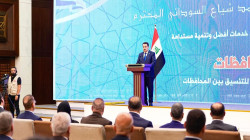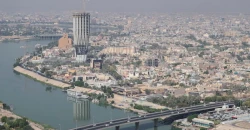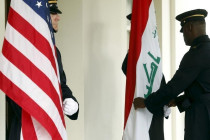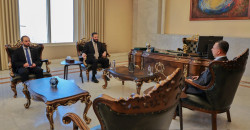Iraq's corrupt maze: Oil, bribes, and broken trust
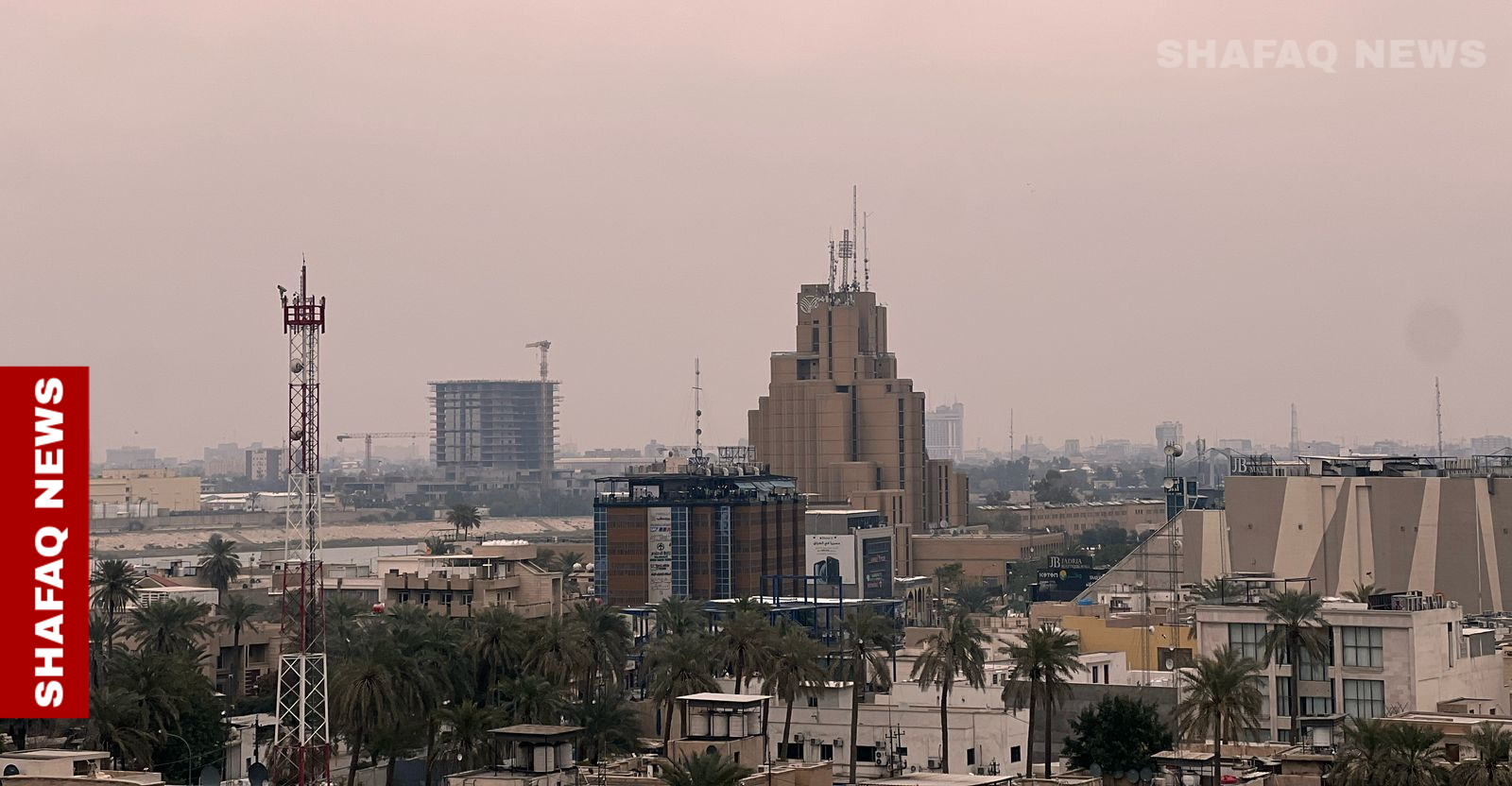
Shafaq News/ Ahmad (pseudonym), a small business owner in Baghdad, had always dreamed of expanding his shop to provide a better future for his family. With years of hard work and savings, he finally felt ready to take the next step. But as he navigated the bureaucratic maze, he quickly realized that success in Iraq is often, not depended on merit but on money and connections.
In 2021, he applied for a government permit to expand his shop. Despite submitting all the required documents, his application remained stalled for months. Frustrated, he approached a clerk for answers, only to receive a knowing smirk. "Things move slowly here unless you speed them up," the clerk hinted. Unable to afford the "special fee," he watched others with money and connections bypass the bureaucratic hurdles with ease.
His experience is not unique; it reflects the daily reality of countless Iraqis navigating a system deeply entrenched in corruption. In Iraq, corruption has become for many a way of life, impacting businesses, governance, and economic development.
From Ba'ath to Bureaucracy: Evolution of Corruption in Iraq
Corruption in Iraq is deeply rooted, spanning multiple political eras and worsening with each successive regime. Under Saddam Hussein's rule, corruption was not merely present, it was institutionalized. His government thrived on patronage networks, where state resources were allocated based on loyalty rather than merit. This system enabled elite members of the Ba'ath Party to accumulate vast wealth while suppressing dissent.
Following the 2003 US-led invasion, corruption surged dramatically. The dismantling of Iraq’s state institutions, combined with the rise of sectarian politics, created a breeding ground for corrupt practices. Government contracts, particularly in the oil sector, became plagued by favoritism and embezzlement. As political instability and ongoing conflicts intensified, corruption became a defining characteristic of Iraq’s governance.
Today, corruption in Iraq takes many forms, such as bribery, nepotism, and the misappropriation of public funds. It has infiltrated key sectors, including the judiciary, public administration, and business. Over time, these corrupt practices have become so widespread that many Iraqis view them as an unavoidable part of daily life.
Iraq's Integrity Commission chief, Judge Haider Hanoun, underscored the pervasive nature of corruption, stating, "Overreach by certain institutions and interference in the work of others, along with violations of constitutional provisions, are forms of corruption."
One of the most glaring examples of this crisis is the infamous "Theft of the Century" scandal, in which approximately $2.5 billion was embezzled from tax deposits. Judge Hanoun expressed hope for a "severe and deterrent" sentence against the scandal’s key figure, stressing the urgency of imposing strict measures to safeguard public funds.
Corruption Barometer: Where Iraq on Global Scale
Transparency International’s Corruption Perceptions Index (CPI) consistently ranks Iraq among the most corrupt nations. In 2024, Iraq ranked 140th out of 180 countries, scoring just 26 out of 100 points, a stark indicator of severe corruption. When compared to neighboring countries, Iraq fares poorly. Saudi Arabia ranks 54th with a score of 51, while Turkiye is positioned 115th with a score of 36. However, Iraq still ranks slightly better than Syria, which remains one of the most corrupt nations globally. On a global scale, Iraq falls far behind highly transparent nations like Denmark and Finland, both of which lead the CPI rankings with scores above 85.
Mohammed Al-Rubaie, head of the Al-Nahrain Network for Integrity and Transparency, explains that Transparency International evaluates transparency using 12 criteria. "The most common forms of corruption in Iraq are bribery, abuse of public office, and misuse of public funds for personal gain," he notes.
He further highlights that "political corruption is driven by private interests in decision-making." This aligns with Transparency International’s 2023 report, which identifies political interference, weak judicial oversight, and an ineffective regulatory framework as the primary drivers of corruption in Iraq.
A World Bank study highlights that nearly 60% of Iraq’s business sector perceives corruption as a major obstacle to economic growth, with bribery being a common practice in government transactions. Furthermore, a United Nations Development Programme (UNDP) survey found that 72% of Iraqi citizens consider corruption the biggest challenge facing the country, ranking even higher than security concerns.
In a troubling exposé, Shafaq News reported a substantial corruption case involving the collection of energy fees across prominent commercial establishments in Baghdad. Billions of Iraqi dinars are reportedly being siphoned each month due to "administrative loopholes" affecting payments from hotels, malls, and other entertainment complexes.
Democracy Derailed: Corruption Stopped Iraq From Progressing
Corruption poses a grave threat to democracy in Iraq, eroding public trust in government institutions and enabling political elites to manipulate the system for personal gain.
A 2023 survey by the United Nations Development Programme (UNDP) revealed that 68% of Iraqis consider corruption the primary factor undermining democracy, while only 30% believe their votes lead to meaningful political change.
Electoral fraud remains a persistent issue, with reports of vote-buying, ballot manipulation, and political favoritism marring recent elections. Observers from the European Union Election Observation Mission in Iraq have documented significant irregularities in polling processes, including voter coercion and the misuse of state resources by powerful political parties. The lack of transparency in campaign financing further exacerbates the issue, as dominant political entities leverage illicit funds to tighten their grip on key government institutions.
Judicial independence is also severely compromised by corruption, making accountability nearly impossible. Many high-profile corruption scandals have resulted in little to no consequences, as political interference frequently obstructs investigations and legal action.
A 2022 Transparency International report revealed that over 70% of corruption-related cases in Iraq are either dismissed or indefinitely delayed due to political pressure. Meanwhile, whistle-blowers and investigative journalists who dare to expose corruption face threats, intimidation, and even assassination attempts, further suffocating efforts to promote transparency.
Anti-Corruption Struggle: Progress and Pitfalls
Amid mounting domestic and international pressure, Iraq has intensified its fight against corruption, launching national initiatives to promote transparency and accountability across public institutions. One of the most significant measures has been the establishment of the Federal Commission of Integrity (COI), an independent body dedicated to investigating corruption cases and ensuring ethical governance. In 2022 alone, the COI issued over 1,500 arrest warrants targeting individuals accused of corruption, including high-ranking officials.
To tackle bureaucratic inefficiencies and curb bribery, the government has begun implementing digital governance and automation. The introduction of electronic payment systems and online administrative processes aims to minimize direct human interactions, which are frequently exploited for corrupt dealings.
Despite these efforts, progress has been slow, with many government institutions still relying on outdated, paper-based systems that allow corruption to persist.
A critical reform effort has also focused on stricter financial oversight of public contracts, an essential step for Iraq’s oil-dependent economy, which has long suffered from embezzlement and fraudulent practices in the energy sector.
The International Monetary Fund (IMF) has urged Iraq to enhance fiscal transparency, particularly in managing its vast oil revenues.
In 2021, the government launched an initiative to audit state-owned enterprises, uncovering billions of dollars in mismanaged funds. Yet, despite these revelations, weak oversight and political connections often shield corrupt officials from accountability.
International organizations have also played a crucial role in supporting Iraq’s anti-corruption drive. The United Nations Office on Drugs and Crime (UNODC) has provided technical assistance to help strengthen Iraq’s legal framework against corruption. Additionally, in 2022, Iraq signed the UN Convention Against Corruption (UNCAC), committing to adopting global best practices.
Despite these initiatives, Iraq continues to face formidable challenges in its battle against corruption. A key obstacle is the entrenched dominance of political elites who benefit from the corrupt system. Many influential figures have a vested interest in maintaining the status quo, making meaningful reform difficult. Moreover, Iraq’s judiciary lacks independence, with many corruption cases dismissed due to political pressure.
Voices of Change: Civil Society's Vital Role
Non-governmental organizations (NGOs) and civil society groups have also played a vital role in exposing corruption and advocating for greater government accountability in Iraq. Organizations such as the Iraqi Transparency Alliance and the Baghdad-based Al-Nahrain Centre for Legal Studies have been at the forefront of monitoring government contracts, reporting corrupt practices, and educating the public about their rights. Their efforts have not gone unnoticed; according to a 2023 survey by the Arab Barometer, 62% of Iraqis believe that civil society organizations are essential in the fight against corruption, underscoring their growing influence.
However, these groups face significant challenges. Many activists and anti-corruption advocates have been subjected to harassment, legal persecution, and even physical attacks. A 2022 report from Human Rights Watch documented at least 15 cases of NGO members being detained or assaulted by unidentified armed groups after exposing corruption involving high-ranking officials. In addition to these threats, a restrictive legal environment further hinders their operations. Government authorities frequently impose bureaucratic obstacles that make it difficult for NGOs to function freely, limiting their ability to hold officials accountable.
Combating Corruption: Multi-Pronged Strategy
Addressing corruption in Iraq requires a comprehensive and strategic approach. Strengthening the legal framework and ensuring judicial independence are critical steps in holding corrupt officials accountable. According to the International Monetary Fund (IMF), implementing a robust anti-corruption legal framework could increase foreign investment in Iraq by at least 15%, driving economic stability and growth.
One promising solution is digital governance. The Iraqi government has taken steps to digitize public transactions, aiming to reduce opportunities for bribery and favouritism. However, these efforts must be expanded and rigorously enforced to create a lasting impact. Transparency International recommends that Iraq fully integrate electronic financial tracking systems to monitor government expenditures more effectively and prevent embezzlement. In this context, experts highlight e-governance as essential to transforming administrative practices across government ministries. Kazem Al-Shammari, a member of Iraq's parliamentary Committee on Economy, Industry, and Trade, notes that "This science is essential for all sectors of the Iraqi state." He further emphasizes that "the initiative should become part of the culture among officials and employees alike."
Empowering civil society and protecting journalists who expose corruption is another crucial step. Stronger legal protections for whistle-blowers and media professionals would encourage public participation in anti-corruption efforts. Countries with robust whistle-blower laws—such as Denmark and Finland—consistently rank among the least corrupt nations, proving the effectiveness of such measures. In Iraq, the Kurdistan Region has launched its first strategic report on public sector corruption, with Prime Minister Masrour Barzani emphasizing the challenges posed by political opposition in the fight against corruption. He stated, "One of the main challenges the government faces in combating corruption and implementing its reform program is political opposition."
Economic diversification is also key. Iraq’s heavy reliance on state-controlled industries, particularly oil, has allowed corrupt networks to thrive. Reducing bureaucratic inefficiencies and encouraging private-sector growth could create a more transparent and competitive economic environment. Prime Minister Mohammed Shia Al-Sudani has emphasized the importance of holding accountable those who fail in anti-corruption efforts or show negligence in addressing violations, stating, "The government has implemented decisive anti-corruption measures with full transparency, legal clarity, and adherence to the rule of law.
